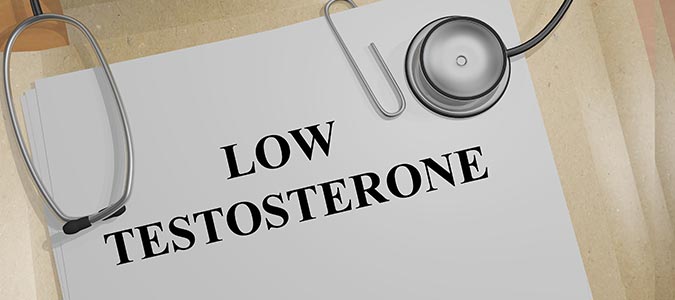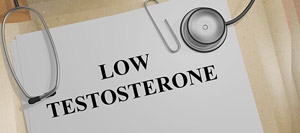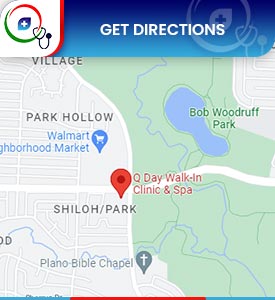Low Testosterone Levels Treatment Specialist in Plano, TX
A condition known as low testosterone occurs when your testicles don’t create enough testosterone. Decreased testosterone levels can impact mood, muscular and fat changes, and sex drive. Symptoms may be lessened with testosterone therapy treatment. Dr. Mohammaed Aqueel Ahmed offers low testosterone levels treatment in Plano, TX. For more information, contact us today or book an appointment online. We are conveniently located at 3560 E Park Blvd Plano, TX 75074.


Table of Contents:
What happens when testosterone is low?
What is the best treatment for low testosterone?
How can I increase my low testosterone?
What happens if low testosterone goes untreated?
When testosterone levels are low, it is common for men to have a wide variety of symptoms that can seriously impact their overall quality of life, such as decreased sex drive, erectile dysfunction, low energy, depression, decreased muscle mass, and increased body fat. In addition, low testosterone levels can lead to decreased bone density, which could result in osteoporosis, an issue that makes the bones weaker and makes them more prone to fractures. Women with low testosterone levels may experience symptoms such as low sex drive, fatigue, and reduced muscle mass. Always remember that low testosterone levels can be brought on by a few different factors like aging, certain medical conditions, and medications.
The treatment for low testosterone can vary depending on the underlying cause of the condition, as well as the individual’s overall health and medical history. Testosterone replacement therapy (TRT) is a well-known treatment choice and involves supplementing the body with testosterone through injections, patches, gels, or pellets. TRT is not fit for everybody and has a few side effects, so it is important to speak with a doctor to see if it is a good choice for you.
In addition to TRT, lifestyle changes such as diet and exercise can also be effective in increasing testosterone levels. A healthy diet that includes foods high in protein, healthy fats, and zinc can help boost testosterone production while doing some regular exercises can improve overall health and well-being.
Other medications may also be prescribed to address specific symptoms of low testosterone, such as erectile dysfunction or low libido. These may include phosphodiesterase inhibitors, such as sildenafil (Viagra), or other medications that increase blood flow to the penis.
It’s important to note that low testosterone can sometimes be a symptom of an unidentified medical issue, like hypogonadism or diabetes, so it’s important to undergo a thorough medical evaluation to determine the cause of the condition and develop an appropriate treatment plan.
Testosterone is made by the body naturally, usually in the testicles in men and ovaries in women. It has a huge part in the production of male features such as muscles, bone density, and body hair. In addition, it also affects sex drive, mood, and cognitive function.
If you have low testosterone, you might experience symptoms such as fatigue, decreased muscle mass, decreased sex drive, and erectile dysfunction.
First and foremost, it’s essential to eat a healthy and balanced diet plan that has lots of protein, healthy fats, and fiber. This can help you maintain a healthy weight and reduce the chance of getting conditions like obesity and diabetes, which can negatively impact testosterone production.
Getting regular exercise is also crucial for increasing testosterone levels. Resistance training, like lifting weights, is extremely effective in boosting testosterone levels. Additionally, high-intensity interval training (HIIT) and endurance training can also help.
Reducing stress levels can also help increase testosterone levels. Your body makes cortisol, which is a hormone that can get in the way of testosterone production when you are stressed. That being said, it’s important to have ways to handle stress, such as practicing mindfulness, meditation, or yoga.
Finally, getting enough sleep is crucial for maintaining healthy testosterone levels. You will need 7-8 hours of sleep night after night to help your body produce and regulate hormones properly.
If these lifestyle changes aren’t enough to increase your testosterone levels, your doctor may prescribe supplements or medication to help. It’s imperative to discuss with your doctor before taking any supplements or medication to ensure that it’s safe and effective for you.
If low testosterone is left untreated, it can lead to some negative health effects. These can include decreased muscle mass and bone density, increased body fat, reduced sex drive, erectile dysfunction, depression, and fatigue. Low testosterone levels have been connected to type 2 diabetes and cardiovascular disease. If you’re worried that you may have low testosterone, it is imperative to talk to your doctor about your symptoms and potential treatment options. For more information, contact us today or book an appointment online. We are conveniently located at 3560 E Park Blvd Plano, TX 75074. We serve patients from Plano TX, Frisco TX, Garland TX, Carrollton TX, McKinney TX, Murphy TX, Wylie TX, and surrounding areas!
Check Out Our 5 Star Reviews





